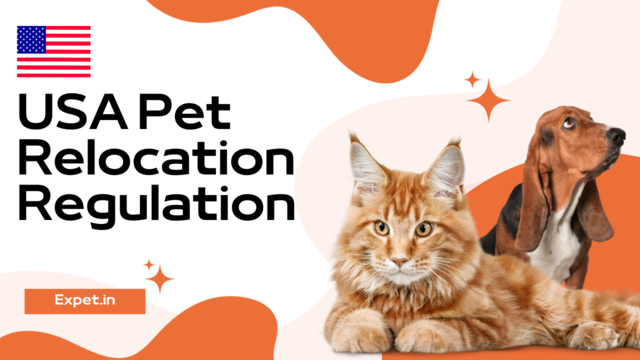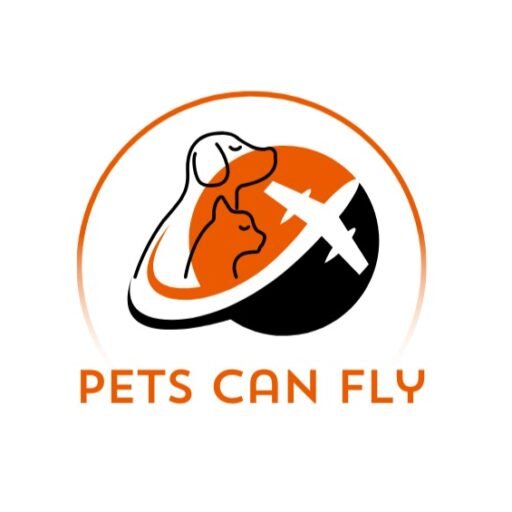
Embarking on the journey of bringing your cherished pet to the United States is a significant undertaking that demands more than just packing bags and booking flights. It entails a meticulous planning process and a profound understanding of the stringent regulations meticulously outlined by the Centers for Disease Control and Prevention (CDC). As we embark on this in-depth guide, our mission is to illuminate the recent updates governing the nuanced landscape of pet importation into the USA from India. With a focal point on the importation of dogs and cats, this comprehensive exploration is designed to equip pet owners with the knowledge needed for a successful and stress-free transition. Whether your journey involves an international relocation or a domestic move within the United States, delving into the intricacies of these requirements is not merely advisable – it is an absolute imperative for ensuring a seamless and harmonious process for both you and your beloved companion.
Book a free consultant fromPets Can Fly for international pet relocation service from Delhi or all over the India
Recent Developments in Importing Dogs
As of February 1, 2023, a pivotal moment has unfolded in the landscape of importing dogs into the United States. The Centers for Disease Control and Prevention (CDC) has made significant decisions to extend the temporary suspension for dogs arriving from high-risk countries for rabies until July 31, 2023. This extension casts a wide net, encompassing not only dogs directly from high-risk countries but also those that have spent time in these regions within the past six months. The aim is clear – to strengthen measures against the potential transmission of rabies, underscoring the CDC’s commitment to public health.
Effective March 1, 2023, pet owners and importers must brace for new documentation requirements that will come into effect. These changes are not merely administrative; they represent a strategic move by the CDC to enhance the screening process and elevate the standards for the entry of foreign-vaccinated dogs into the USA.
Key Requirements for Dogs
- CDC Rabies Vaccination and Microchip Record: For foreign-vaccinated dogs arriving from high-risk countries, possession of a valid CDC Rabies Vaccination and Microchip Record is non-negotiable. This record assumes paramount importance as it serves as a comprehensive document verifying the rabies vaccination status of the pet. The microchip, in particular, aids in the seamless identification of each animal, contributing to the overall efficiency and accuracy of the entry process.
- CDC Dog Import Permit: In a bid to further fortify the entry process, foreign-vaccinated dogs are now obligated to obtain a CDC Dog Import Permit. This permit is not just a formality; it represents a critical additional step in the screening process. Alternatively, pet owners can secure a reservation at a CDC-approved animal care facility, a measure aimed at ensuring the systematic monitoring of incoming dogs. This strategic move aligns with the overarching goal of the CDC – to promote public health and safety by minimizing potential risks associated with the importation of animals.
- US-Vaccinated Dogs: Dogs that have received their rabies vaccination in the United States enjoy certain exemptions from the stringent CDC Dog Import Permit requirement. To qualify, these dogs must meet specific criteria, including holding a current and valid US-issued rabies vaccination certificate, being equipped with an ISO-compatible microchip, meeting age requirements, being in good health upon arrival, and choosing to arrive at one of the 18 airports equipped with a CDC quarantine station. This nuanced set of criteria ensures that the exemption is granted only to dogs that pose minimal health risks and are seamlessly identifiable throughout the entry process.
- Quarantine Protocols: For instances where three or more dogs from high-risk countries are being imported, a mandatory 28-day quarantine period at a CDC-approved animal care facility is instituted. While this measure might seem stringent, it serves a crucial purpose – the containment and meticulous observation of animals. This quarantine period acts as a safety net, preventing the potential spread of diseases and ensuring that any health concerns are addressed before the animals integrate into their new environment.
Recent Developments in Importing Cats
The process of bringing a cat into the USA unfolds with a unique set of considerations distinct from those applied to dogs. While the focus remains on maintaining the health and well-being of feline travelers, recent developments reflect a nuanced approach recognizing the differences in the nature of cat importation.
Key Requirements for Cats
- Veterinarian-Issued Health Certificate: Unlike dogs, cats are not mandated to have proof of rabies vaccination for importation. However, the emphasis shifts to the importance of a veterinarian-issued health certificate. This document, completed within 10 days of travel, serves as a crucial attestation to the cat’s health and fitness for the journey. While neither mandated by the CDC nor the USDA, some airlines may independently require this certificate. Its significance lies in providing airlines with assurance regarding the cat’s health, offering an additional layer of documentation to facilitate a smooth and uneventful travel experience.
- Optional Vaccines: While not obligatory for importation, there is a recommendation for optional vaccines that contribute to the overall well-being of the feline traveler. These vaccines include Feline enteritis, Rhinotracheitis, and Calicivirus. Although not imposed as a requirement, the advisability of these optional vaccines stems from a commitment to the welfare of the cat during and after the importation process. These vaccines protect against common feline diseases, ensuring that the cat enters its new environment in the best possible health.
Importing Other Pets
For individuals planning to bring pets other than cats or dogs into the USA, a comprehensive resource lies within the USDA APHIS website. The USDA (United States Department of Agriculture) Animal and Plant Health Inspection Service provides a wealth of information tailored to the diverse range of pets that may find their way into the country. The specific requirements for each type of pet can vary significantly, underscoring the necessity for thorough research and strict adherence to guidelines to guarantee a seamless importation process.
Additional Considerations
- Moving Pets Cross-Country: In the aftermath of the COVID-19 pandemic, pet owners must be aware of potential limitations on domestic flight options for pets. These restrictions may make alternative transportation methods, particularly ground transportation, a more viable and preferable choice for cross-country moves within North America. The shift in preference towards ground transportation ensures the continued safety and comfort of pets, considering potential disruptions to traditional flight options.
- Preparing for Export: The journey of pet importation begins at the point of departure, and meticulous preparation is paramount. Checking with the country of origin is essential to ascertain the specific export requirements. This involves securing a government endorsement/export permit for pets to leave the country. Additionally, official government veterinarian inspections may be mandated before departure to ensure that the pets are in optimal health and meet the destination country’s standards. Initiating this process well in advance ensures a smooth and hassle-free departure, avoiding last-minute complications that may arise without proper preparation.
- Airline-Specific Requirements: Different airlines may impose varying documentation requirements for the transportation of live animals. It is crucial for pet owners to communicate directly with their chosen airline, well in advance of travel, to understand and comply with all paperwork requirements. This proactive approach minimizes the risk of encountering unforeseen challenges and ensures a seamless journey for the pets.
- Pets Can Fly International Forwarders Assistance: Recognizing the complexities involved in pet importation, Pets Can Fly International Forwarders emerges as a crucial ally in navigating this intricate process. Their dedicated team of experts is equipped to provide guidance and support every step of the way. From understanding specific requirements to ensuring compliance with regulations,Pets Can Fly International Forwarders takes on the responsibility of facilitating a seamless and stress-free experience for both pet owners and their cherished companions. As a trusted partner, they contribute to alleviating the potential overwhelm associated with pet importation, making the entire process more manageable and reassuring for all parties involved.
Conclusion
In conclusion, the endeavor of importing a pet into the United States unfolds as a multifaceted process, demanding the utmost care and attention to detail. The landscape of regulations and guidelines set by authorities such as the Centers for Disease Control and Prevention (CDC) requires not only compliance but also strategic and meticulous planning to navigate smoothly.
Amidst the intricacies of this process, Pets Can Fly International Forwarders stands out as a beacon of reliability and support for pet owners undertaking this significant journey. More than just a logistics service, Pets Can Fly International Forwarders offers a partnership grounded in expertise and understanding of the unique challenges posed by pet importation. As a reliable ally, their role extends beyond mere transportation logistics; they are dedicated to providing support and assistance every step of the way.
Whether you’re bringing a dog, a cat, or any other beloved pet, the key to a successful importation lies in staying well-informed and meeting all requirements. This not only ensures compliance with regulations but also guarantees a smooth and comfortable transition for both the pets and their dedicated owners. The commitment to remaining informed, coupled with the assistance of a trusted partner like Pets Can Fly International Forwarders, transforms what could be a daunting process into a well-managed and enriching experience for both pet and owner alike. After all, the journey of importing a pet should not be just about crossing borders; it should be a seamless transition that prioritizes the well-being and comfort of our cherished companions.

